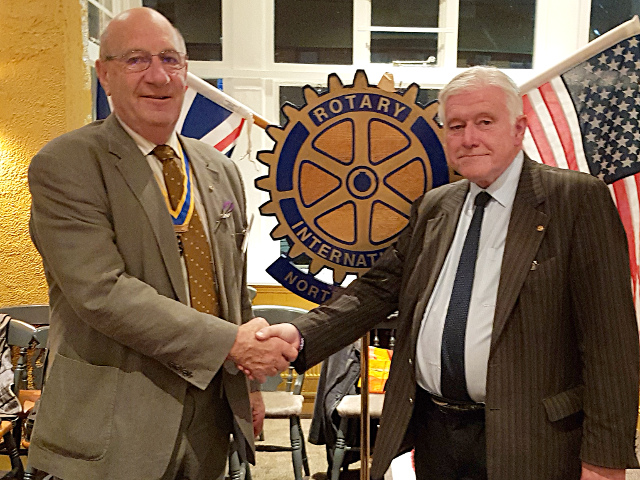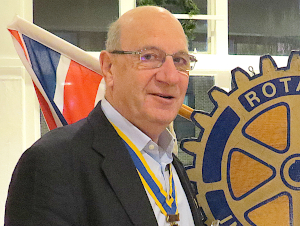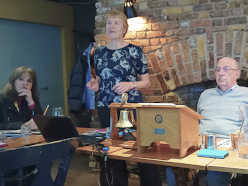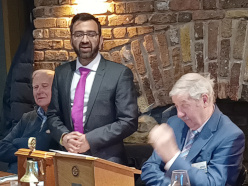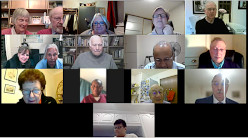Our speaker on Wednesday 24 October was Rotary Barry Copock who was speaking on behalf of the Stroke Association. After our usual business had been conducted Barry spoke.
What is a stroke? A stroke is a brain attack. It happens when the blood supply to part of your brain is cut off. Blood carries essential nutrients and oxygen to your brain. Without blood your brain cells can be damaged or die. This damage can have different effects, depending on where it happens in your brain. A stroke can affect the way your body works as well as how you think, feel and communicate.
What causes stroke? As we age, our arteries become harder and narrower and more likely to become blocked. However, certain medical conditions and lifestyle factors can speed up this process and increase your risk of having a stroke.
What are the different types of stroke? Most strokes are caused by a blockage cutting off the blood supply to the brain. This is an ischaemic stroke.
However, strokes can also be caused by a bleeding in or around the brain. This is a haemorrhagic stroke.
A transient ischaemic attack or “TIA” is also known as a mini-stroke. It is the same as a stroke, except that the symptoms only last for a short amount of time. This is because the blockage that stops the blood getting to your brain is temporary.
Can you recover from stroke? All strokes are different. For some people the effects may be relatively minor and may not last long. Others may be left with more serious problems that make them dependent on other people.
Unfortunately not everyone survives – around one in eight people die within 30 days of having a stroke. That’s why it’s so important to be able to recognise the symptoms and get medical help as quickly as possible.
The quicker you receive treatment, the better your chances for a good recovery.
Thank you Barry for your talk – we are now wiser and understand the subject much better.

